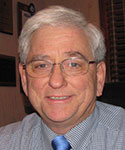Codes of Conduct: More Than Just Rules
By Dr. James J. Carroll, CPA, Georgian Court University –
January 16, 2017

As CPAs encounter ever-more-detailed professional codes, it’s tempting to think of them as a mere technical rulebook. But I see those codes as a badge of honor.
As licensed CPAs, we have not only mastered complex knowledge and skills, but we are entrusted with the authority to use them appropriately. Our work is more than calculations and rule application — it is exercising judgment in an environment of right and wrong.
Why is this distinction important? There are five reasons:
1. Professional Ethics Turn an Occupation Into a Respected Profession
Professional ethics create a duty that must be respected by the members of a profession. Our values and moral code are expressed in the rules that we set through licensing bodies and professional organizations.
The restrictions those rules impose are a major source of strength. When you assert the rules think of the phrase, “As a CPA, I am not allowed to do that.” We are not only acting ethically, but assuring our clients and the public that our reputation as moral actors is well-earned. Ethics do not limit the CPA. Instead they empower CPAs through the credibility that they provide.
2. Our Judgments Have Impact
CPAs make judgments that move markets. Our work influences merger decisions, tax strategy, government and corporate plans, and investment decisions. And based on professional ethics, CPAs are well positioned to accept that responsibility. Our judgments are respected as accurate and sound.
Our judgments are grounded in intense technical skills, but also the understanding of their potential impact on a single transaction and society as a whole. Professional ethics root the values of CPAs in the values of our society — values that encourage and reward individual success, but within the bounds of our society.
3. Our Work Relies on Trust
CPAs are often considered to be “trusted advisors.” The roots of that trust are in our competencies. However, our skills need to be directed and limited to goals that are respected by our society. Professional ethics provide that direction.
Imagine our country’s 664,532 actively licensed CPAs (NASBA, April 2016), without the limits and direction of ethics. Accounting would have no limits; our judgments could be made in the service of destructive values. Without professional ethics, “creative accounting” would be rampant, and society as we know it would quickly be destroyed.
4. CPAs Report to a Higher Authority, Not the Boss
Professional ethics create an important buffer for CPAs: They allow and require us to withstand organizational pressures to serve an immediate party’s interest. Instead, we follow our code to ensure fairness for society in general. The CPA reports to and has a direct responsibility to an outside authority — a higher power, so to speak, that exists independently of any level in an organization.
This strikes a balance on all sides. CPAs may intimidate dictatorial bosses, and that is terrific. Yet those dictatorial bosses need CPAs to have credibility in our society. There is always a strong demand for employees who demonstrate a duty to a strong set of ethics.
5. A Unique Strength: Independence
The cornerstone of the AICPA Code of Professional Conduct is independence. Independence guarantees our integrity and objectivity in making judgments that influence client interests.
This can be challenging for clients who may be used to engaging experts as advocates, not neutral advisors. The legal roots of our society are in a court system that embraces individual advocacy. However, the professional ethics of a CPA preclude advocacy when it comes to professional judgments. So if a CPA is asked, “Which side are you on?” he or she must answer, “I cannot be on a side. I cannot be an advocate.”
This difference becomes clear when we consider the true users and beneficiaries of our work. Our clients are not the essential users of our services; instead, we support and serve the interests of society in general. Our professional ethics define that responsibility and relationship.
Be proud of your badge of honor. Be competent. Act ethically. You are a CPA and you answer to a higher authority.
 | James J. CarrollDr. James J. Carroll, CPA, CMA, CFE, CFM, CFF, CGMA, is a professor of business administration in Georgian Court University’s School of Business & Digital Media. He is a long-standing member of the NJCPA Professional Conduct Committee. |
This article appeared in the January/February 2017 issue of New Jersey CPA magazine. Read the full issue.